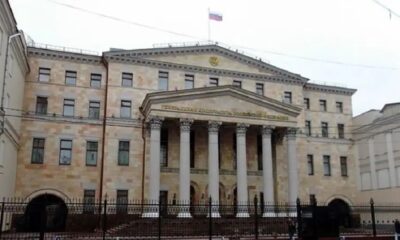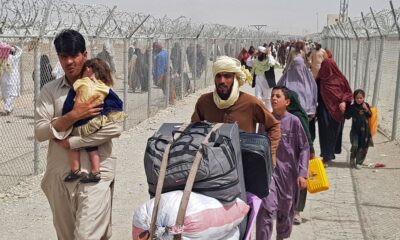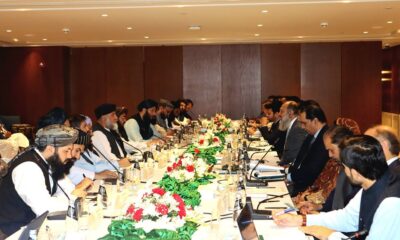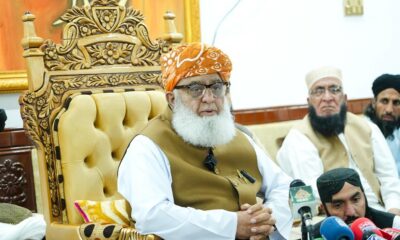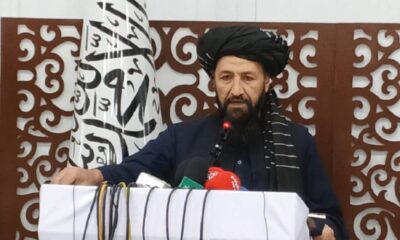Latest News
AWCC launches 3G services in a remote area of Kunar province
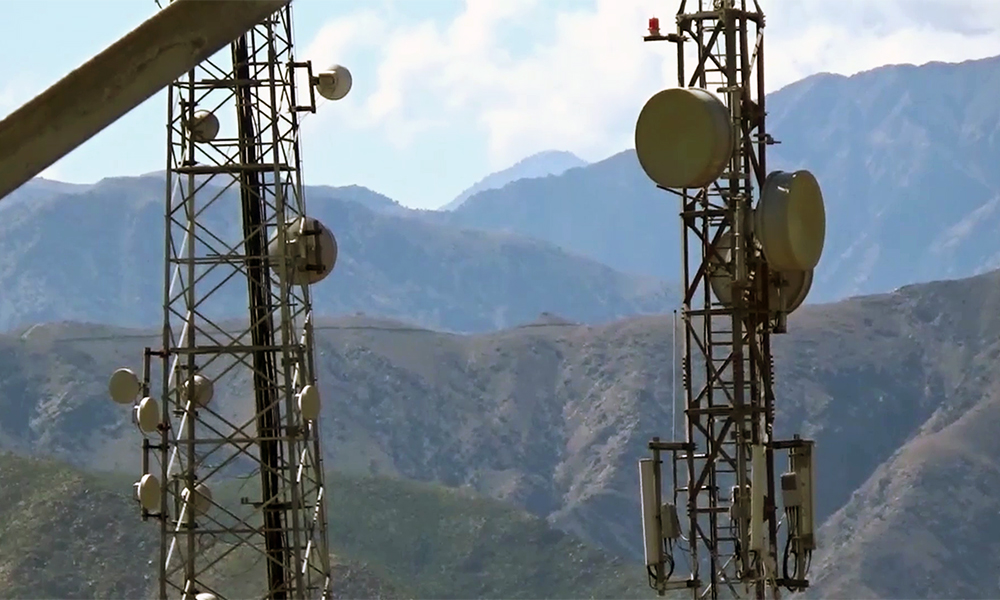
Afghan Wireless Communication Company (AWCC) has rolled out 3G services to the remote Chaghan district in the northeastern province of Kunar.
Being so remote, Chaghan residents have struggled with limited telecommunications in the past but this week they welcomed AWCC’s initiative.
Officials in the area also welcomed the move and said the new infrastructure installed in Chaghan also helps cover surrounding areas.
“An AWCC site was opened in a dominant location. This is a very good place. It is connected to the [provincial] center and covers some areas of Marawar district and Watepur district. We are grateful to AWCC,” said Sajjad, provincial director of communications.
Ejazul Haq Yousufzai, head of Afghanistan Telecom Regulatory Authority (ATRA) in Kunar, said efforts are ongoing for the development of telecommunication services so as to reach all districts in the province.
Local authorities in Kunar expressed their appreciation for the provision of telecommunication and internet services by AWCC and acknowledged that the services provided by the company are of a good quality.
“First of all, we are very grateful to the employees of AWCC for providing these services to the people of Kunar. We ask all companies and institutions to provide such services to the mountainous province of Kunar,” provincial governor, Ahmad Taha, said.
Abdullah Haqqani, deputy governor of Kunar, said: “Kunar is a mountainous province. The number of [cellphone] towers is not enough. We demand that problems faced by the people get solved.”
Local residents also expressed their satisfaction with the recent move of AWCC.
“The opening of this site is a great achievement for these two valleys. With this, these two valleys were connected to the center. The problems that people were facing before have now been solved,” Hayatullah, a resident of Kunar province, said.
Meanwhile, AWCC officials in the eastern zone assured the people of Kunar that the company will provide telecommunication services to all remote areas of the province.
“This site plays a key role for these two valleys, Dangam, Ghazi Abad, Nari, Watepur and up to Nuristan. Without the site, other sites cannot provide these services,” said Attaullah Sahil, head of AWCC in the eastern zone.
With the improvement of the security situation, AWCC has not only expanded its telecommunication services in the eastern zone, but it has covered many remote areas of the zone with 3G and 4G internet services.
Kunar province lies in the northeastern section of the country and borders northern Pakistan. The vast majority of the province is mountainous and extremely rugged.
The province is dominated by the lower Hindu Kush mountains which are cut by the Kunar River to form the forested Kunar Valley. The mountains, narrow valleys with steep walls, and rivers present formidable natural obstacles and have historically constrained all movement through the province.
Even in the early 21st century, movement on foot, with pack animals, or with motorized vehicles is extremely limited and channeled due to the significant geographic restrictions.
Latest News
Russia’s Supreme Court suspends ban on Islamic Emirate

Russia’s Supreme Court on Thursday agreed to suspend the Islamic Emirate’s designation as a banned organization in Russia, following a formal request from the Prosecutor General’s Office.
Although the IEA remains officially designated as a terrorist organization in Russia, the court’s ruling effectively freezes that classification, opening the door to broader political engagement.
The IEA, however, continues to be subject to United Nations sanctions.
According to Russian media reports, a representative of the IEA attended the closed-door court session, during which the court reviewed the prosecutor’s petition seeking to suspend the ban.
“The suspension follows an administrative lawsuit filed by the Prosecutor General’s Office of the Russian Federation,” Supreme Court Judge Oleg Nefyodov said while reading the ruling, according to local media.
The session was held behind closed doors, and Russian authorities have not yet publicly commented on the potential political implications of the move.
Latest News
WATCH: Authorities scramble to accommodate refugee influx at Afghanistan border
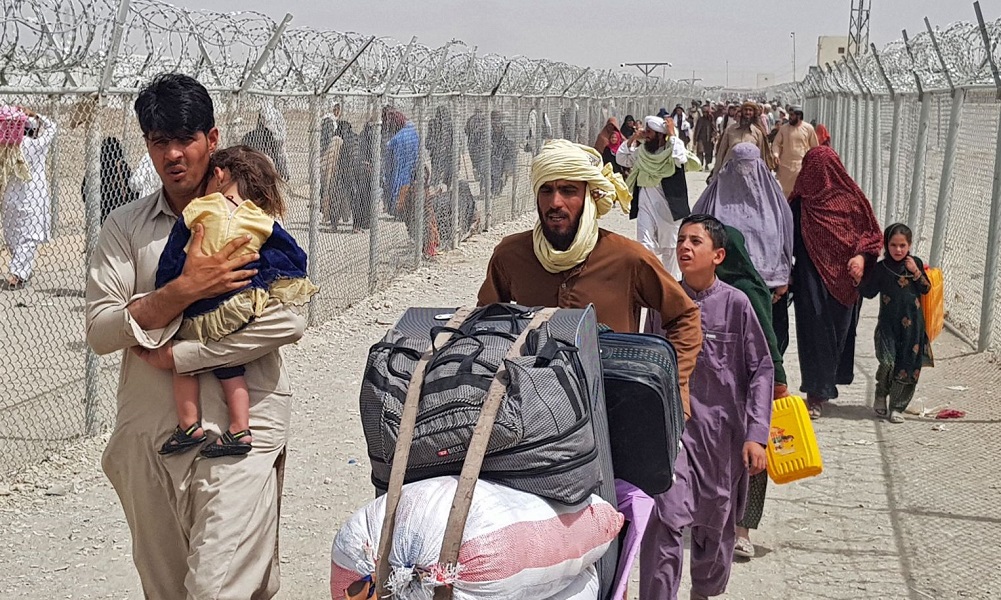
As thousands of refugees cross back into Afghanistan amid Pakistan’s campaign to forcibly expel over 1 million Afghans, local officials scramble to accommodate the influx which also means areas of landmines need to be cleared around the Torkham border area in order to establish more tented camps.
The mines and other unexploded ordnance are remnants of Afghanistan’s 20 year war that ended with the collapse of the former US-backed government in August 2021.
Government officials who visited Torkham this week say they are ready to cooperate with returning refugees.
Nooruddin Torabi, the head of the National Disaster Preparedness Agency, visited Torkham on Tuesday. He stressed the need to clear the area of mines and unexploded ordnance.
Torabi also said that another transit camp would be established to temporarily accommodate the returnees.
Refugees however have slammed the Pakistan government for the way they have handled this. Many say they are now homeless after having left everything behind, including houses, businesses and possessions. In addition to this, a large percentage of them have nowhere to go after having lived in Pakistan for decades.
Afghans have been fleeing to Pakistan for over 40 years – since the invasion of the old Soviet Union in December 1978.
Islamic Relief reported this week that tens of thousands of Afghans are facing dire conditions in makeshift camps after crossing the border from Pakistan.
According to the organization, an assessment team that visited Torkham found that many refugees are arriving in Afghanistan without any shelter, food, cash or water. These families were forced to leave possessions – including animals and household items.
People arrive in droves, covered in dust, crammed onto trucks, and face a barren border with no basic services in sight. The first thing that greets them is a harsh, wind storm swirling with dust.
This influx comes amid an economic crisis in the country and as global cuts to humanitarian funding have forced many essential services in Afghanistan to close, including health facilities and food distributions.
Many of the new arrivals have lived in Pakistan for decades after seeking refuge there, fleeing conflicts and instability in their homeland. They include children who were born in Pakistan and have never been to Afghanistan. Many others no longer have close family members in
Afghanistan or have not visited for many years. They are not truly ‘returning home’ as they hardly know Afghanistan and have no homes or livelihoods to kickstart their lives here.
Some of the arrivals do not even speak an Afghan language and many returnees lack proper identification documents.
The interim Afghan government has pledged to take care of refugees returning to Afghanistan and humanitarian organizations are ramping up efforts to help these refugees.
Pakistan last month set an early April deadline for some 800,000 Afghans carrying Afghan Citizen Cards (ACC) issued by the Pakistani authorities to leave the country, in the second phase of efforts to remove Afghans. More than 1.3 million Afghans who hold Proof of Registration cards from the UN refugee agency, UNHCR, have also been told to move outside the capital Islamabad and the neighbouring city of Rawalpindi
Latest News
Afghan, Pakistani commerce minister meet in Islamabad to discuss trade
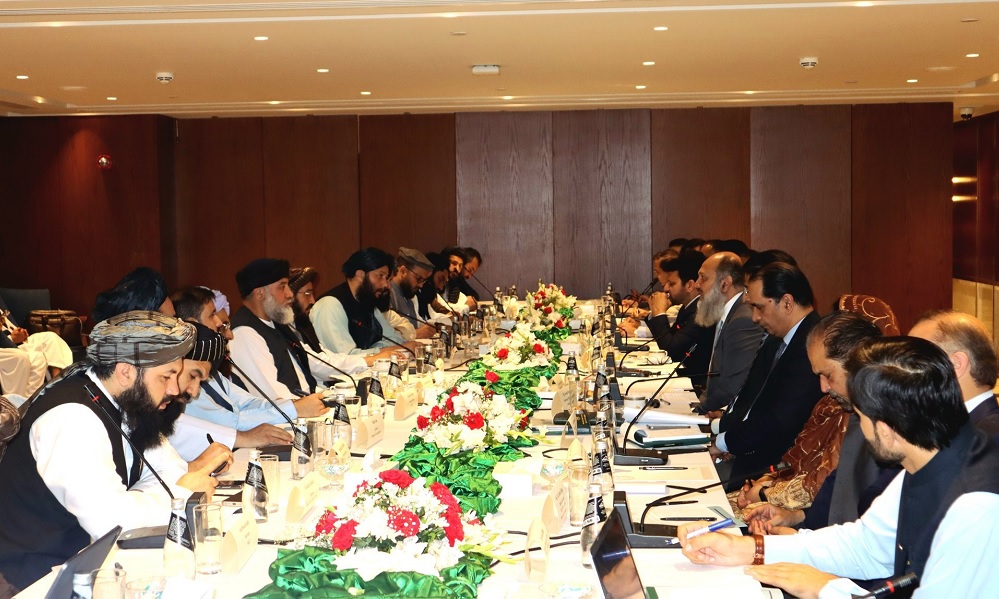
Afghanistan’s Acting Minister of Industry and Commerce Nooruddin Azizi met with his Pakistani counterpart Jam Kamal Khan, discussing bilateral trade, transit and other issues of mutual interest, it was announced on Thursday.
Separate meetings between the technical teams of both sides are also expected to be held for further discussions to find proper solutions for existing challenges and boost the bilateral trade, Afghanistan’s embassy in Islamabad said in a statement.
In a separate statement, Afghanistan’s Ministry of Industry and Commerce said that the meeting discussed extension of APTA trade agreement, transit facilities, prevention of smuggling of goods, coal exports, round-the-clock operations at Torkham crossing, possibility of bilateral trade through Ghulam Khan port, movement of trucks between the two countries, bank guarantee and creating a comprehensive mechanism for the management of ports.
-

 Regional5 days ago
Regional5 days agoIran, US hold ‘positive’ talks in Oman, agree to resume next week
-

 World4 days ago
World4 days agoTrump says Ukraine talks may be going OK, but there is a time ‘to put up or shut up’
-
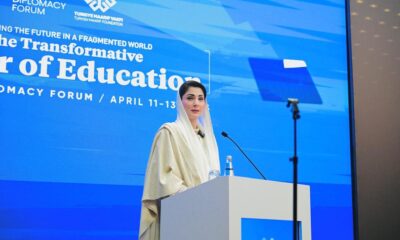
 Latest News4 days ago
Latest News4 days agoPakistan’s Punjab CM calls for ‘human response’ to Afghan girls’ education ban
-

 Regional3 days ago
Regional3 days agoSaudi Arabia plans to pay off Syria’s World Bank debts – Reuters
-

 Latest News4 days ago
Latest News4 days ago6.1-magnitude earthquake shakes northern Afghanistan
-
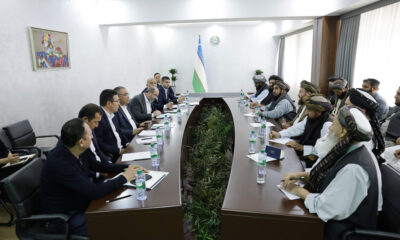
 Latest News3 days ago
Latest News3 days agoAfghanistan and Uzbekistan to expand cooperation in agriculture sector
-

 Latest News2 days ago
Latest News2 days ago17 babies born at Torkham refugee centers in past two weeks
-

 World2 days ago
World2 days agoTrump says Iran must give up dream of nuclear weapon or face harsh response


